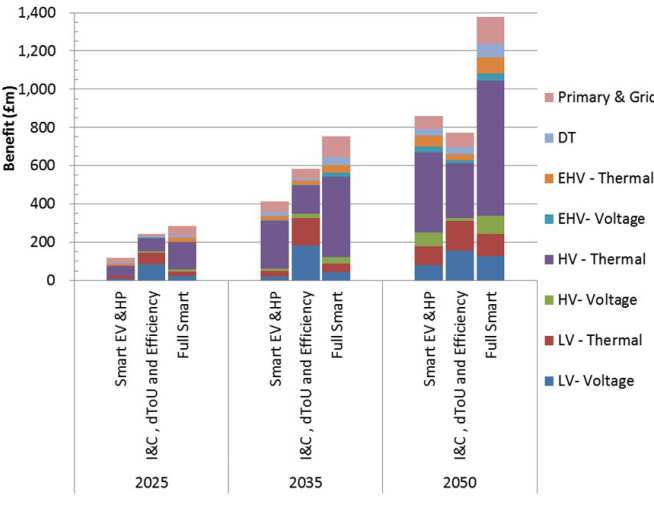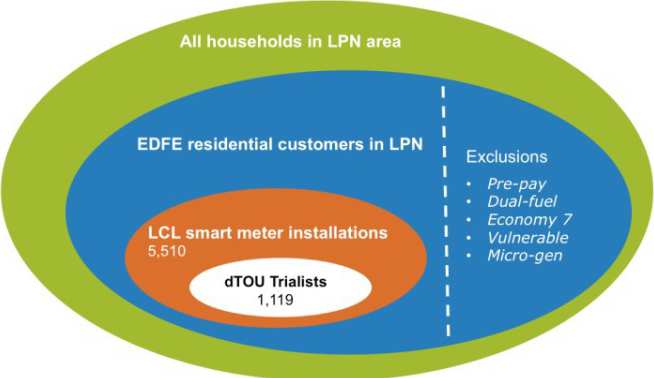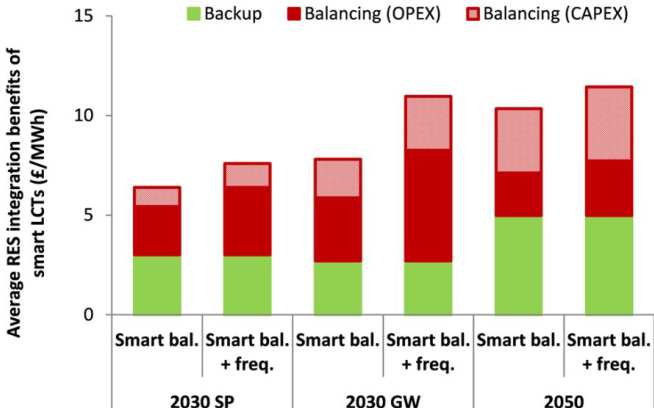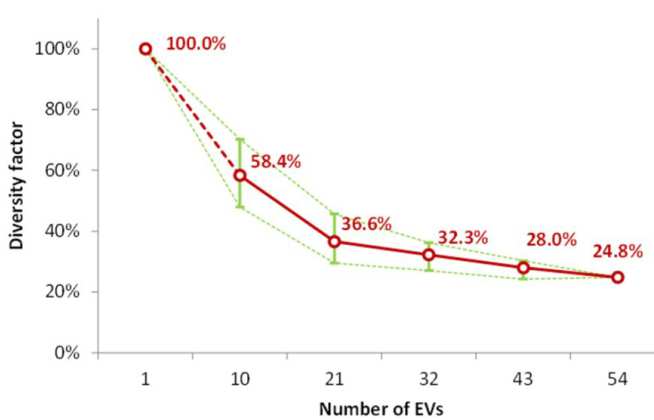Low Carbon London
 Low Carbon London is a £28m, 4 year research project led by UK Power Networks (the Distribution Network Operator (DNO) for London) and funded through the Low Carbon Networks Fund (LCNF) run by OFGEM. It investigates the impact of a wide range of low carbon technologies on London’s electricity distribution network. Imperial’s role in the project is to collate data from an extensive range of field trials carried out for the project and apply our expertise and analysis tools to assess the likely future effect of the new smart technologies and changing demand patterns on the distribution network.
Low Carbon London is a £28m, 4 year research project led by UK Power Networks (the Distribution Network Operator (DNO) for London) and funded through the Low Carbon Networks Fund (LCNF) run by OFGEM. It investigates the impact of a wide range of low carbon technologies on London’s electricity distribution network. Imperial’s role in the project is to collate data from an extensive range of field trials carried out for the project and apply our expertise and analysis tools to assess the likely future effect of the new smart technologies and changing demand patterns on the distribution network.
Areas of study include the operation and planning of smart distribution networks, domestic demand side response, industrial and commercial demand side response, the carbon impact of smart distribution networks and the impact of wide-scale electric vehicle deployment.
The emerging advanced applications for distribution network operation, control and design are critical for integrating the distributed low carbon technologies (LCTs) trialled in the programme into the electricity system. In the current model, distribution networks are designed to cope with worst-case operational conditions. Here network security is provided by asset redundancy—the result is low network utilisation. The flexibility of LCTs makes possible a new approach in which network constraints are mitigated through real-time control, making it possible to defer or avoid network reinforcement. Different future scenarios are considered in our analysis, comparing different choices of smart technology with the option of applying all the main smart technologies currently in development.

Demand Side Response (DSR) has been identified as a key technology in reducing network investment costs, both at the local and national level. However, little practical experience of DSR existed before the trials carried out for the project. Both domestic (dynamic time of use (dTOU)) and industrial/commercial DSR trials have been carried out for the project. Analysis of results assesses the potential of DSR when applied in real-life situations and also highlights potential problems with DSR programmes.

The implications of deployment of the low-carbon technologies (LCTs) and solutions studied in Low Carbon London for the carbon emissions and wind integration cost of the broader UK electricity system are analysed and quantified for the project. Key findings from characterising demand profiles for deployment of electric vehicle, heat pump, industrial and commercial demand side response, dynamic time-of-use tariffs and energy-efficient smart appliances are translated into nationally representative demand profiles and their impact on the CO2 performance and wind integration cost of the electricity system quantified for the period 2030 to 2050.

Electrification of road transport is becoming a prominent element of decarbonisation policy. A transport sector based on electric vehicles (EVs) would be characterised by significant flexibility in terms of when the vehicles charge, creating opportunities for utilising more efficient charging strategies to optimise electricity generation and enhance the efficient usage of network capacity. One factor highlighted by our analysis is the effect of diversity in reducing the required installed charging capacity.

Project Output
Papers: (available at http://cired.net/publications/cired2015/session4.html)
Aunedi M, Woolf M, Strbac G, Babalola O, Clark M, Characteristic Demand Profiles of Residential and Commercial EV Users and Opportunities for Smart Charging, Paper 1088, 23rd International Conference on Electricity Distribution, Lyon 2015
Ustinova T, Woolf M, Ortega Calderon J E, Bilton M, O'Brien H, Tindemans S, Djapic P, Strbac G, Analysis of Customers’ Performance in Industrial & Commercial Demand Side Response Trials, Paper 1514, 23rd International Conference on Electricity Distribution, Lyon 2015
Bilton M, Dragovic J, Ibeanu N, Djapic P, Strbac G, Impact of solar PV and heat pump installations on residential distribution networks, Paper 1327, 23rd International Conference on Electricity Distribution, Lyon 2015
Schofield J, Carmichael R, Tindemans S, Woolf M, Bilton M, Strbac G, Experimental Validation of Residential Consumer Responsiveness to Dynamic Time-Of-Use Pricing, Paper 1031, 23rd International Conference on Electricity Distribution, Lyon 2015
Dragovic J, Pudjianto D, Djapic P, Bilton M, Strbac G, Application of Distribution System State Estimation On Engineering Instrumentation Zones Of Low Carbon London, 23rd International Conference on Electricity Distribution, Lyon 2015
CAP people
Goran Strbac, Mark Bilton, Alex Whitney, Bikash Pal, Danny Pudjianto, Dimitrios Papadaskalopoulos, Enrique Ortega, Fei Teng, Harriet O’Brien, Ioannis Konstantelos, James Schofield, Jelena Dragovic, Marko Aunedi, Matt Woolf, Mingyang Sun, Mohamed Kairudeen, Nathaniel Bottrell, Nnamdi Ebeanu Chike, Predrag Djapic, Richard Carmichael, Ritsuko Ozaki, Simon Tindemans, Tatiana Ustinova, Tim Green.
Low Carbon London Project Partners
- UK Power Networks (lead).
- Imperial College london.
- CGI.
- EDF Energy.
- Siemens.
- National Grid.
- Smarter Grid Solutions.
- Transport for London.
- Flexitricity.
- Enernoc.
- Mayor of London.
- Institute for Sustainability.


